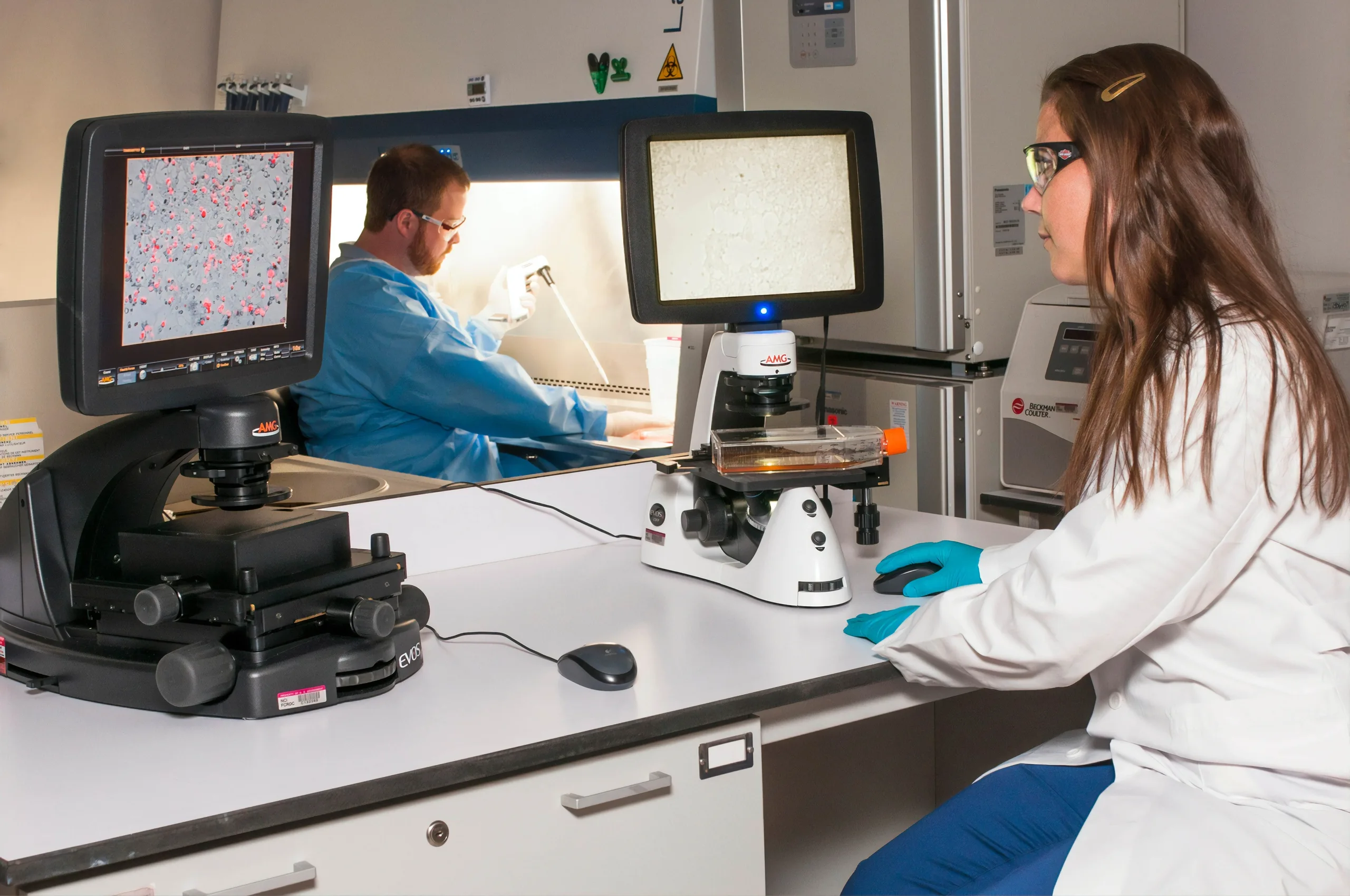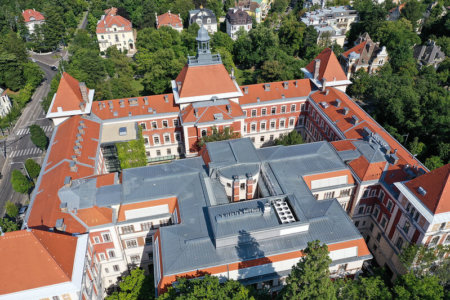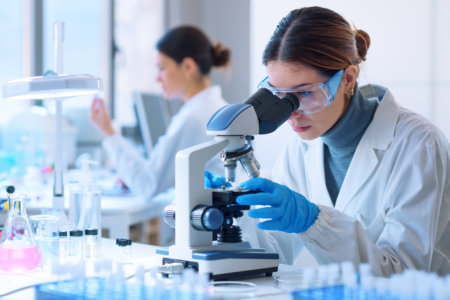As the world faces major challenges like multi-drug-resistant pathogens, climate change, and future pandemics, BOKU University students are working on solutions to overcome them. Part of their pursuit to create a sustainable future, they’re empowered by their university’s Master’s programme in Biotechnology, using the broad knowledge and useful skills it provides to drive necessary innovation in areas like biological sciences, chemistry, and process technology.
The Master’s programme in Biotechnology provides a scientific foundation for practical biochemical development. There are interdisciplinary courses in biochemistry, microbiology, molecular biology, and bioprocess engineering – all of which enable future professionals to think creatively when providing solutions for the world’s current issues.
Besides developing your theoretical understanding in classrooms, the programme is designed to train you to approach these issues hands-on and prepare you for a career in the industry. With 42 ECTS credits in core subjects, including a compulsory internship, this programme will not only provide you with scientific and technical expertise but also improve your soft skills such as critical and logical thinking, ability to communicate and work in a team, as well being ethically and socially responsible.
Six specialisations
The Master’s programme in Biotechnology lets you dive deeper into a specific area of interest. These specialisations include Bioinformatics, Bioprocess Engineering, Medical Biotechnology, Plant Biotechnology, Environmental Biotechnology, and Protein Engineering and Technology.
Bioinformatics focuses on the development of experimental designs and complex computer analyses. This specialisation enables you to understand, critically evaluate, and use different ways of studying biology using computers that cover fields of bioinformatics, biostatistics, and molecular simulation.
Bioprocess Engineering works towards a broad and in-depth understanding of the planning, construction, execution, and revision of the biological and technical processes required to create new products in life sciences.
The Medical Biotechnology specialisation is jointly offered with the Medical University of Vienna, one of the world’s largest medical training centres in Europe. It focuses on the design, development, and production of biotechnological products relevant to medical applications.
Plant Biotechnology expands on fields of plant sciences, molecular biology, and biochemistry. This theoretical foundation serves as a basis for the practical development and enhancement of the entire process of using plants for the food and animal feed sector, industrial raw materials, as well as medical purposes.
As the World Health Organisation (WHO) reports dangerous levels of ozone and nitrogen dioxide in European countries, the Environmental Biotechnology specialisation stands out as a way to contribute towards minimising environmental problems and pollution. You will explore procedures for treating waste streams and environmental contamination.
Protein Engineering and Technology provides training in protein analysis, simulation techniques, protein engineering, and biocatalysis to enable engineers to create proteins that can be used for various purposes like environmental cleanup, diagnosing diseases, or creating new medicines.

Source: BOKU University
Effective structure
For the master’s programme, the sum of the compulsory and elective courses must be made up of at least 15% technology and engineering, 15% natural sciences, and 15% economic and social sciences, and law. You start with compulsory modules to build a solid base of advanced theoretical and methodological skills, which will prepare you for the specialisation in one of six fields of research. Elective modules let you expand further on specific areas.
Finally, the project work lets you apply all you’ve learned from the core courses and specialisation on a research problem rooted in your chosen specialisation. In this master’s thesis, you will demonstrate your ability to address a scientific topic both thematically and methodologically within the biotechnological field. During these six months, you’ll not only enhance your research capabilities, but you will also gain additional skills and training in presentation techniques.
Sustainable university and city
BOKU is a leading European life sciences university with a focus on sustainability in its programmes. The university is committed to achieving the United Nations’s 17 Sustainable Development Goals, with the Master’s programme in Biotechnology checking off eight.
Surrounded by the greenery of Vienna , Austria, BOKU is just 20 minutes away from the city centre, where there are many cultural activities for you to do and historical sites to visit. Enjoy classical tunes from the music of Wolfgang Amadeus Mozart, Ludwig van Beethoven, and Gustav Mahler or visit the many museums with famous collections of world-famous works of art including the Kunsthistorisches Museum and the Albertina.
There is much to do and discover in the city named the world’s most liveable city for a third year running, according to the results of the Economist Intelligence Unit’s latest annual Global Liveability Index. The ranking is based on the liveability of 173 cities across five key categories, including stability, healthcare, culture and environment, education and infrastructure.
The index tells the world what BOKU students and graduates have long known: Vienna is safe, affordable and so much fun for students. If the days are filled with art, culture, sports, and nature, then the nights are all about music of the highest quality and bars for all tastes.
Follow BOKU University on Facebook, Flickr, Instagram, LinkedIn, TikTok, X, and YouTube.













